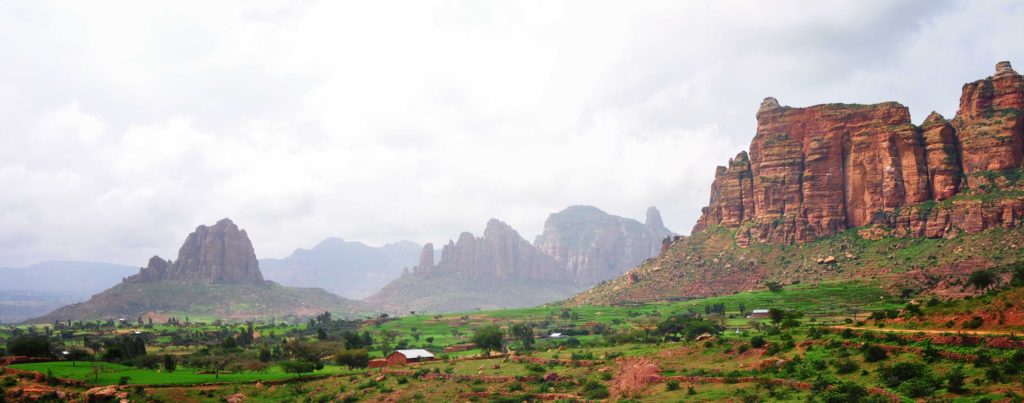The protracted crisis in Tigray has resulted in degradation of infrastructure, disrupted access to health services and deteriorating food security, in addition to civilian deaths due to ongoing military operations. The absence of a death registration system has made it difficult to understand the impact of conflict on mortality in Tigray. Mortality estimates are a key measure of population health; they expose the effects of crises and inform decisions about appropriate resource allocation.
We are public health researchers at the London School of Hygiene & Tropical Medicine (LSHTM). We have been working closely with academics and researchers inside Tigray on a project to estimate mortality in Tigray using a multi-method study. One of these methods is an online survey of the Tigrayan Diaspora.
We would like to invite members of the Tigrayan Diaspora to help us to understand mortality in Tigray by participating in this study. Participating in the study involves taking a 20-25 minute survey online. The survey asks for information about your close family (i.e. your parents, spouse, siblings, and nieces/nephews). The survey is completely anonymous; we will not ask your name or for any other information that could identify you or any member of your family. After completing the questionnaire, you may be asked to invite five Tigrayans (who also reside outside Tigray) from your social network to complete the same survey.
Please find more information on the study by clicking HERE. We have also included some frequently asked questions below. You may also contact us at any time to ask questions about the study.
For inquiries in Tigrinya/English, please contact Sarah Cassidy-Seyoum.
Frequently Asked Questions
What is the aim of the study?
The aim of this study is to inform the response by humanitarian actors, government stakeholders and civil society in Tigray to the ongoing crisis. This study is expected to generate evidence on the extent to which mortality among children and adults has been changing in Tigray over time.
Why have I been asked to take part?
You have been invited to participate in the study by one of your friends, relatives, or colleagues. You are eligible to participate if you have a Tigrayan background, reside outside Tigray, and can complete the survey on behalf of your close family. We would like to collect information on living and deceased members of your family in Tigray and abroad. We intend to have a range of Tigrayan participants from different countries outside of Tigray.
Do I have to take part?
It is your choice to join this study. The survey asks you to confirm that you understand what is involved in participating in the study and confirms that we will not ask you for any information that could identify you. Once you have started the survey, you may stop at any time.
What does it mean to participate?
Participation involves completing an online survey about your close family members (i.e. your parents, spouse, siblings, and nieces/nephews). The survey asks for information about each close family member (e.g. gender, age, whether they have died or not, and if so, where and by what means). The survey also includes some questions about the average socio-economic status of your closest family members who are still in Tigray.
After completing the survey, you will also be asked to invite five people from your social network to complete the same survey. You can invite others within your family to take the survey, as long as they are not your children, siblings, parents, nephews, nieces, uncles, or aunts (or any of the above from your partner’s family).
If possible, we would ask you also to share the survey with contacts outside your family with people who have not already participated in the survey. We recommend that you invite five people, but you do not have to. When you have completed the survey, the system will take you to a webpage that will allow you to invite others anonymously. The system automates the sending of invites so that we will not have access to the contact details you provide.
Are there any risks or benefits for me in taking part in this study?
There is a risk that you may recall events that will make you sad or upset: if for any reason you prefer to stop answering the survey you are, of course, free to stop. Please find mental health resources HERE. There are no real benefits for you from taking part in the study. Still, your information will help raise awareness regarding the severity of the humanitarian situation in Tigray. We hope this will both evidence and improve resource allocation decisions by humanitarian actors. It may also contribute to efforts to resolve the ongoing conflict.
Will my participation be anonymous?
Yes. During the survey will not ask you for any identifying information about yourself or your family members. We will not ask for names or addresses. The survey has been designed to ask for the minimum amount of information to achieve the aim of the study. No one (including members of the study team) will be able to identify you or any of your family members. We will ask you to forward the survey to others; however, this will also be done anonymously.
All data will be stored securely. Once the study is complete, we will publish the data so that others can replicate our analysis and verify our estimates. The published data will be completely anonymous.
Study results will be published in a study report and one or more scientific articles. They will also be presented to researchers and organisations assisting with the humanitarian response in Tigray. We will include a link to the final published report and any other published outputs on this website.
How will study results be used?
Study results will be published in a study report and one or more scientific articles. They will also be presented to researchers and organisations assisting with the humanitarian response in Tigray. We will include a link to the final published report and any other published outputs on this website.

